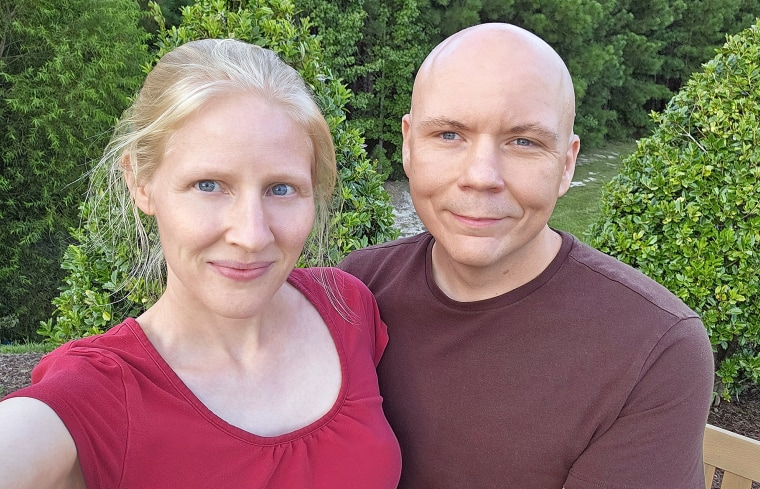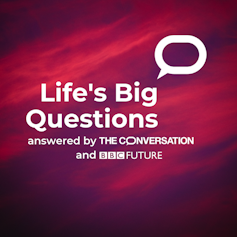TALK WITH SHIVI

Essay on : A Day Without Rules (450 words)
A day without rules essay.
Imagine a world where rules and regulations suddenly ceased to exist. What would a day without rules be like? While the idea might initially sound liberating, delving deeper reveals a complex tapestry of consequences that could reshape society as we know it. In a world governed by laws, rules provide structure, order, and a sense of security. However, a day without rules would challenge the very fabric of our existence and test the boundaries of human behavior.

At first glance, the idea of a day without rules might seem exciting. People might experience a temporary sensation of freedom and abandon, releasing themselves from the constraints of societal norms. But this unbridled freedom could quickly lead to chaos and uncertainty. Without traffic rules, streets might become chaotic and dangerous, jeopardizing lives and property. Social interactions could devolve into conflicts, as there would be no guidelines to mediate disputes or ensure mutual respect.
The absence of rules could also affect economic systems. Businesses operate within a framework of regulations that ensure fair competition, consumer protection, and ethical practices. Without these regulations, the market might become a lawless battleground, where unethical practices prevail, and consumers are left vulnerable to exploitation. Investments and financial transactions could become risky endeavors, hindering economic growth and stability.
One of the most profound impacts of a day without rules would be on public safety and health. Regulations that govern food safety, healthcare, and environmental protection play a crucial role in safeguarding human well-being. Without these rules, the risk of contaminated food, unregulated medical procedures, and environmental degradation could skyrocket, leading to dire consequences for individuals and the planet.
On a societal level, the absence of rules could expose marginalized groups to even greater vulnerability. Laws and regulations often exist to protect the rights and dignity of all individuals, regardless of their background. Without these protections, discrimination, prejudice, and injustice could run rampant, further deepening social divides and eroding trust within communities.
While the idea of a day without rules might spark creative thinking and innovation in some areas, it’s important to recognize that innovation can thrive within the boundaries of responsible regulations. Regulations often challenge individuals and industries to find innovative solutions that meet the needs of society while respecting ethical and environmental considerations.
In conclusion, a day without rules might initially appear as an opportunity for unfettered freedom, but the consequences would likely be far-reaching and undesirable. Rules and regulations serve as the backbone of a functional society, ensuring order, safety, and fairness. While questioning and revising rules can be valuable for progress, a complete absence of rules would likely lead to chaos, endangering lives, economies, and the very foundations of civilization.
Leave a Comment Cancel reply
Save my name, email, and website in this browser for the next time I comment.
Daily Plate of Crazy
A Day Without Rules
September 4, 2017 by D. A. Wolf 3 Comments
It wasn’t just about six weeks of dieting, or the rigorous discipline required of a new project, or the usual activities of daily life that require paperwork and phone calls and more paperwork and more phone calls. It was a whole host of things coming together all at once; I needed a day without rules. And this past weekend, I took it.

I put down my proverbial pen. I shed the constraints of a drag-on diet. I allowed my mind to wander, old movies to amuse me, and some of my favorite books to find their way back into my hands.
How Do You Relax?
What about you? When you feel yourself on the edge of a dense, pressing excess of Things To Do though you know you need to refuel and re-center, then what?
Do you call a few friends and coordinate an impromptu get-together? Do you grab a map — yes, an actual paper map — and head off down the road for a spontaneous adventure?
Do you allow yourself a walk through nature? Would you prefer to meander in the mall? Are you happier taking to the crowded city to enjoy the pulse of its population and the aromas of its food trucks?
Might you, like me, curl up in the quiet somewhere to take solace in stories of unusual characters and faraway places?
Doesn’t the way that you take time for yourself change based on where you are and with whom? Isn’t your “day without rules” different at age 25 than it would be at age 35, or for that matter, 15 or 65? What is the compelling reason that you need your day off, and doesn’t that reason direct you toward a varied Rx for how to spend it?
If you manage to take your day without rules because stress is crushing you, won’t you be more efficient, more effective, and more productive after a genuine break from your norm? Aren’t you, well… nicer? Happier? Refueled?
Ah… Discipline.
Some of us pride ourselves on very old school, much lauded, typically American “work ethic” values: focus, determination, persistence. And discipline? As an independent worker, if you don’t have discipline — self-discipline — you can forget it. You must be able to effectively (and naturally?) create structure within which to work where no such imposed structure already exists.
Fortunately, that’s never been a problem for me. On the contrary; if anything, the opposite is more of a struggle. Discipline has been part of my life since… well, as long as I can remember. Consequently, casting the day’s and the week’s checklist out of my consciousness (and off my nagging virtual desk), even for a few hours, is nearly impossible.
Of course, for anyone who has read about, watched on the news, or is living through the recent devastation of hurricane Harvey (or any other monumental life event), the usual daily challenges pale in complexity and need. Tumultuous external events, especially disasters, remind us how much we depend on each other, how much we take for granted, and how precious are our most fundamental gifts — loved ones, health, home, community.

Perspective Is Found When We Step Back
Sometimes, we just need to take a step back, to reassess, to give ourselves a day or even two without rules. We need to set aside the bills, the phone calls, the reading group assignment; we need to nix the newspaper, the weekend visit to an irritating aunt, the housework in a space that is already clean enough. We need to can the calorie counting (yes, just eat the ice cream), the three-mile run, and run to a quiet corner in the apartment or the house instead — to settle in with Frank Sinatra or Frank Langella, or maybe Fanny Price.
We need our angst-easing albums, our campy favorite films, our familiar words in novels that give us consistent comfort. There is little, really, that can’t be put away for an afternoon or an evening now and then — in favor of something that refills the well.
You May Also Enjoy
- How to Relax When You’re a Type A Personality
- Just Eat the Ice Cream!
- “So Busy, So Sorry!”
- Breaking the Rules
September 4, 2017 at 4:16 pm
Being without rules is a break only if 99.9% of the time you live with rules. Not everybody is like that or has that discipline. I’m more like you–routine orients me, work fulfills me, the three-mile run is no pleasure but going up stairs without panting is…. To me, a break, a day without rules, is probably reading all day, especially a really good novel that isn’t going to teach me anything.
September 4, 2017 at 8:00 pm
Relaxing with a glass of red wine ? and tuning into the silliness of Bachelor in Paradise on ABC 7pm central time, after a long weekend cleaning debris, climbing ladders trimming palm trees and repairing house damage of Hurricane Harvey!
September 12, 2017 at 9:42 am
Well….. Outlander has returned to STARZ, so I have my guilty pleasure back to help me relax. Glass of wine and gripping historical fiction! Perfect. Whether we call them “rules,” “obligations” or “expectation,” to feel overwhelmed by them serves the opposite goal from what they are intended. Order and discipline in life is necessary but there is no shame in ditching it all for a short time if we believe it’s necessary to mentally regroup and refresh. Well said, my friend. xo
Leave a Reply Cancel reply
Your email address will not be published. Required fields are marked *
Save my name, email, and website in this browser for the next time I comment.
Notify me when new comments are added.
This site uses Akismet to reduce spam. Learn how your comment data is processed .
Parlez-vous francais?
Popular this month.
- 50 Years old and Starting Over
- Best Places to Live When You're Over 50 and Reinventing
- When a Couple Wants Different Things
- How to Comfort Someone Who Is Stressed
Food for Thought
- Why I Choose to Think Like a Man
- When You Marry a Loner
- Emotionally Needy Parents
- Sex vs. Lovemaking: Why Are We So Confused?
- Think Looks Don't Pay?
- Rebranding Mediocrity: Why Good Enough Isn't Good Enough
Privacy Overview
| Cookie | Duration | Description |
|---|---|---|
| cookielawinfo-checkbox-analytics | 11 months | This cookie is set by GDPR Cookie Consent plugin. The cookie is used to store the user consent for the cookies in the category "Analytics". |
| cookielawinfo-checkbox-functional | 11 months | The cookie is set by GDPR cookie consent to record the user consent for the cookies in the category "Functional". |
| cookielawinfo-checkbox-necessary | 11 months | This cookie is set by GDPR Cookie Consent plugin. The cookies is used to store the user consent for the cookies in the category "Necessary". |
| cookielawinfo-checkbox-others | 11 months | This cookie is set by GDPR Cookie Consent plugin. The cookie is used to store the user consent for the cookies in the category "Other. |
| cookielawinfo-checkbox-performance | 11 months | This cookie is set by GDPR Cookie Consent plugin. The cookie is used to store the user consent for the cookies in the category "Performance". |
| viewed_cookie_policy | 11 months | The cookie is set by the GDPR Cookie Consent plugin and is used to store whether or not user has consented to the use of cookies. It does not store any personal data. |
IELTS Blog & IELTS Mock Test
Ielts exam preparation for a higher band score., ielts essay: pretend you woke up one day and there were no rules.
IELTS Essay Topic:
Pretend you woke up one day and there were no rules. People could suddenly do whatever they wanted! Explain what the world would be like.
Use your imagination!
Sample Answer: Laws and rules are the regulating factors of any community. They organize and govern the behavior of people. There are several impacts for the absence of rules and laws. Chief among them are chaos and corruption.
If no rules are found, chaos and anarchy will prevail in a community and people will surely do whatever they desire even if their actions are against the public norms. Indisputably, people will behave randomly and carelessly whether in streets, shops, schools, etc. For example, drivers will neglect traffic lights causing many dreadful accidents which, in turn affect the lives of people and sabotage the public property. Another example lies in schools- students will disrespect their teachers, quarrel with each other and damage the school properties. Such actions result from the absence of rules which regulate behaviors and conducts.
Another impact of the absence of rules is the emergence of corruption in communities. Undoubtedly, if the rules are absent, the strong will control everything in a community. For example, when the matter comes to recruitment, the strong or the rich people will take high positions or ranks and will adopt nepotism in the course of employment. Such matter will prevent the poor from obtaining job opportunities leading to their misery. Consequently, the concept of injustice will be dominant owing to the absence of laws and rules. Therefore, the community will be corrupted and disabled.
To sum up, rules are crucial and essential for regulating any community which can suppress the two negative impacts discussed above. Such impacts will disrupt prosperity and prevent success in communities.
[Written by – Abdulaziz Alharthi]
3 thoughts on “ IELTS Essay: Pretend you woke up one day and there were no rules ”
It’s a good one👍
Good try though.
It was very helpful but if it was written in a proper essay form, it would have been better and easier to understand. But the sample was very good and easy to understand.
Leave a Reply Cancel reply
Your email address will not be published. Required fields are marked *
CAPTCHA seven × one =
live a radical life of unconditional love

What a Day Without Rules Looks Like
My children said, “Sleep in tomorrow, Mum. You’re overtired. You haven’t had much sleep in the last 48 hours.” So I slept in.
When I got up, the kitchen was deserted. Everyone had had breakfast, washed the dishes, cleaned up, and disappeared. I found myself some cereal and made a cup of tea, and then went back to the warmth of my bed to enjoy my breakfast. Gemma-Rose (9) discovered me a short time later.
“Mum! You’re awake. I was waiting for you to wake up so I could make you some porridge.”
“Perhaps you can make some pikelets for morning tea instead,” I suggested. My youngest daughter smiled.
When I’d showered and dressed, I went in search of everyone else. “What are you all doing?”
Sophie (12) smiled. “I’ve been educating myself. I’ve written a blog post about my sewing. Can I show you?”
The house was clean and tidy. There was even washing on the line.
“The basket wasn’t quite full,” said Charlotte (15), “but I decided to do some washing anyway. If I’d left it until tomorrow, the basket would have been overflowing.”
I joined the younger girls in the family room, where we worked on our own projects for some time. Mid-morning Gemma-Rose made a batch of pikelets, and then everyone appeared to eat them. When we’d licked the last of the syrup-coated crumbs off our lips, we headed back to work.
“Shall we have lunch?” Imogen asked about 12.30 pm.
“Informal or at the table?”
“What do you think? Informal?”
“Yes. Sounds good.”
Imogen and Charlotte collected the orders, and they made lunch. Everyone helped clean up afterwards. Then it was back to reading and writing and piano practices.
“Have we decided what we’ll have for dinner?” asked Sophie mid-afternoon.
“I’ll make potato and red pepper soup,” I offered.
“No, you won’t,” said Imogen. “You’re tired. I’ll do it.” I didn’t protest.
When I noticed the shade overtaking the garden, I snuck outside and brought in the washing. Good thing someone was playing the piano, otherwise, the girls might have heard the pegs falling into the bucket, and I wouldn’t have been allowed to do this job on my own.
Soon Imogen will start preparing the dinner. I will wash the afternoon tea dishes. Someone will set the table for dinner. Andy will arrive home from school. Callum might make it back from his day out in time to eat with us. If he doesn’t, we’ll put his dinner aside for him to eat later. Duncan will appear from his bedroom where he’s been studying all day. We’ll chat around the table, swapping news. Then everyone will help wash and dry the dishes by hand.
After dinner, the girls will play a computer game or watch a DVD or read a book. Perhaps we’ll sit together in the family room and chat while we enjoy the warmth from the gas heater.
About 8.00 pm, Sophie will say, “We’d better get ready for bed,” and then she and Gemma-Rose will head off to the bathroom.
I will say, “Do you want me to tuck you into bed now or do you want to read for a while?”
If the girls say, “We’d like to read,” and then I don’t arrive at the right time to turn off the light, Gemma-Rose will come looking for me. “We’re tired. Can you come and say goodnight to us, please? We want to go to sleep.” They like a proper kiss and hug before closing their eyes.
About 8.30 pm, Charlotte will appear saying she is tired and is going to bed. She might read before turning out the light. Imogen might join her, but then again she might stay up chatting to Andy, or they could watch a DVD together. I have no idea when the boys will go to bed because I will have headed off to my bed long before they start to think about sleep.
Our day looks very ordinary, doesn’t it? We completed the chores. Everyone was helpful and considerate. We all worked and ate meals together. We made a few quick decisions that were mutually acceptable. The girls will go to bed at a reasonable hour. So will I. Nothing interesting at all about our day. Just a quiet, peaceful day.
A day without rules? It’s not as exciting or as wild as it sounds. Or maybe it is. It depends on how we look at it. Each day everyone is willing to work together and to help each other so that life runs smoothly and is productive. And we do this without the help of rules. I think that’s rather exciting after all. Maybe you think so too!
Image: totally random and nothing to do with the topic. I added something interesting to liven up this ordinary post.

PS: Sleeping in late isn’t typical, but then again, not having hardly any sleep in 48 hours isn’t typical either! Everything else is pretty much normal.
There are more stories about parenting responsibly without rules in my book Radical Unschool Love !
I didn't find it boring, sounds like the perfect day to me 🙂
I like the photo too. He's very cute.
I love quiet days, where we can stay home and just be together. I'm quite happy living a 'boring' life. Glad you like the photo!
Slightly off the topic but I was wondering how you get "Andy and Me time"? I find one of the reasons I ask my girls to head off to bed some nights (they have a suggested bed time but we don't strictly enforce it) is for time alone for me (man they can talk!) or simply for some quiet time with Iain. I find he enjoys the time alone with me (don't get me wrong ADORES his girls and spends time everyday playing with them) but he really likes to have time alone, just with me, which two little girls don't quite get yet … lol
BTW please feel free to not answer this, feel a bit rude asking but I just find this is one area I have to juggle sometimes. I can sometimes find myself putting my girls needs ahead of my mans and need to remind myself now and then to keep "stoking the relationship fire" … lol
There's no problem asking this question! I think you are so right: 'my man and me' time is very important. Andy and I always spend an hour together alone after dinner, so we can chat and catch up with the day's news. We can always retreat into our bedroom if the kids insist on hanging around, but usually we just say we need a little quiet time. We don't wait until the kids have gone to bed to have time together, because I am an early to bed person. Andy usually works to a late hour, preparing school lessons, and I couldn't possibly manage to stay awake until he is ready to go to bed. Not ideal but just the way it is.
We always make sure we have time alone at the weekends. Every Saturday afternoon we'll go somewhere together, maybe have lunch out or coffee. We take time on Sundays to sit and chat. Our children get plenty of time with dad so they are happy to go off and let me have him to myself. Actually, they sometimes say to Andy, "You need to take Mum out for coffee." They recognise it's important. Maybe as your girls get older they will 'get it' too!
I'm glad the girls helped you have some rest xxx
I was spoilt! I hope you get some similar rest tomorrow. I imagine you need it!
Oh to have such order and self-motivation/discipline in my home. Inspiring.
I wrote this post as one in a series. We were discussing the need or otherwise for rules, in order to encourage order and discipline in our children. Of course I have also had many disorganised days in our years of homeschooling. I hope you will read my posts about tired mothers and difficult days (there's a label in the side-bar) so you get a balanced picture. Inspiring… maybe. But I wouldn't want to give anyone the impression that we live a perfect life. Typical days change over time. At the moment life is very easy compared to when we had little children in the family. We just persevered through the more difficult times and yes, life has ended up relatively tranquil! I'm sure that's the way it is for many long term homeschoolers.
Thank you so much for visiting my blog and stopping to say hello!
Please add your thoughts! Cancel reply
This site uses Akismet to reduce spam. Learn how your comment data is processed .

Why I Wanted to Delete My Blogs

Excited About Maths
Related posts.

Facing the Fact We Are an Introverted Family

How to Unschool During the Baby Seasons of Life: The Magic Answer

My Number One Unschooling Fan
Discover more from stories of an unschooling family.
Subscribe now to keep reading and get access to the full archive.
Type your email…
Continue reading
Paragraph on Life without Rules – by Silki
Introduction:
Although sometimes we think the life without rules would have been quite good, because we could do anything we wanted, but you know, it’s not always true.
If we could do everything we wanted, the society would become uncivilized, like a jungle.
Sometimes we do things knowingly or unknowingly which hurt our family and society well being. This is why rules are required. Our actions and thoughts should have some limits. The human nature is very greedy and destructive. Life without rules won’t be good as humans will destroy life and the nature. Our life will be worse if we don’t adhere to some of the rules, which have been developed to drive us toward the right direction.
Rule Binds Human Nature :
The human actions are driven by many factors. Our aim, perceptions or thoughts, believes and our nature is responsible for what we do. If the family raising a child is not good, it’s obvious that the influence of the family on the child’s overall upbringing won’t be good. In that case, the child will have negative personality and bad intentions. He/she will most likely do things which can hurt the others. If there is no rule to bind the actions of such people, they will create chaos in the society.
A Life without Rule:
ADVERTISEMENTS:
Some of the rules of life are very important. They help us stay unite and maintain the balance of the society. For example, the rule of getting married has a deep significance. It makes us committed to a relationship. It teaches us to take responsibilities of a family. Simply put, this traditional social rule of being committed to a relationship actually makes us a responsible human being. The other intention of this life rule is to bind a man and woman into a serious relation where they will commit only to each other and not to anybody else.
Life without rule can become seriously chaotic if a man or a woman fails to understand the importance of being civilized. Even after so many regulations and bindings, humans are threat to each other. I know that some orthodox rules sometime become the obstruction to human growth, but that you’ve to understand. If not adhering to a rule doesn’t harm the well being of others, life without rule of that kind is welcomed anytime. You have to understand when sticking to a rule is beneficial for the personal safety and the well being of the society.
Conclusion:
Not all rules are important for our safety and living. If the society tells you to follow the rules of racism or caste discrimination, you should raise voice against it. If your family and relatives force you to choose a career option saying that it’s a family rule, that’s rubbish. You really have to understand the fundamental logic supporting the rules. If life without rule makes yours and others life worse, it’s not good. On the contrary, if your parents say that waking up early in the morning is a rule, there are many scientifically proven reasons to support the habit. So, it’s not always true that life without rule would have been good. What I mean to say is try to understand every rule logically and then only decide to follow it.
Related Articles:
- Paragraph on Importance of Discipline – by Silki
- Paragraph on Personality – by Silki
- Paragraph on My Family- by Silki
- Human Life is Dependent on Nature – by Silki

A World Without Rules
Plus, kevin doesn't let a crisis go to waste..

The terror in Israel is not merely a continuation of the old cycle; it’s something new, and much worse. Attention ought to be paid before we descend into the comfort of our cliches.
This is what a world without rules looks like.
As Anne Applebaum writes , the post-World War II “rules-based world order” was often aspirational, describing “how the world ought to work, not how it actually works.” But still, those rules influenced the way the world behaved. They functioned as both a guardrail and a sort of international conscience.
Russia’s invasion of Ukraine and the brutal attack on Israel were “both blatant rejections” of that order, she writes, “and they herald something new.”
Both aggressors have deployed a sophisticated, militarized, modern form of terrorism, and they do not feel apologetic or embarrassed about this at all. Terrorists, by definition, are not fighting conventional wars and do not obey the laws of war. Instead, they deliberately create fear and chaos among civilian populations.
The atrocities are not collateral damage. They are the point. Think of ISIS reborn, writ large — a template for our post-rule world of terror.
The Hamas terrorists paid no attention to any modern laws of war, or any norms of any kind: Like the Russians, Hamas and its Iranian backers (who are also Russian allies) run nihilistic regimes whose goal is to undo whatever remains of the rules-based world order, and to put anarchy in its place. They did not hide their war crimes. Instead, they filmed them and circulated the videos online. Their goal was not to gain territory or engage an army, but rather to create misery and anger. Which they have—and not only in Israel. Hamas had to have anticipated a massive retaliation in Gaza, and indeed that retaliation has begun. As a result, hundreds if not thousands of Palestinian civilians will now be victims too.
“During its lifetime,” writes Applebaum, “the aspirational rules-based world order and the international community that supported it were frequently mocked, and rightly so.” Statesmen too often looked the other way, shedding “crocodile tears” and expressing “profound concern’ when their “unenforced rules were broken.” Hypocrisy became a fixture.
But like the equally outdated Pax Americana that accompanied the rules-based world order—the expectation that the U.S. plays some role in the resolution of every conflict—we might miss the Geneva Conventions when they are gone. Open brutality has again become celebrated in international conflicts, and a long time may pass before anything else replaces it.
Morning Shots is a reader-supported publication. To receive new posts and support my work, consider becoming a free or paid subscriber.
Israel’s 9/11
On Monday’s podcast, Will Saletan and I discussed the sophisticated, but barbaric, attack on Israel — and the political gamesmanship that ensued.

You can listen to the whole thing here. Or watch us on YouTube.
Time to grow up
“It’s worth reflecting on the issues that dominated the American political landscape just a few days ago if only to fully apprehend just how inconsequential they are,” writes Noah Rothman .
Our timeline has been clogged with the trivial, the petty, and the ephemeral; and our politics dominated by the performative demagoguery of the deeply unseriou s.
For the better part of a month, House Republicans argued amongst themselves over whether it was necessary or even desirable to keep the U.S. government open if they failed to use leverage they did not have over Democrats to secure spending cuts. It was a conversation divorced from political reality, and it produced only one concession from the party in power — cutting off support for a U.S. partner that has been ruthlessly invaded by an overt American enemy.
In many ways our addiction to clownishness and our willingness to toy with the politics of nihilism is a sign of our complacency. At some level, we think we can burn it all down without consequences. The events of the last few days should be a shocking reality check.
It all seems so fatuous and trivial today. The slaughter of civilians in Gaza was not a “tragedy,” as some rote expressions of sympathy for the hundreds of dead Israelis suggest. It was an assault on civilization itself. And it was not a rogue act. Evidence indicates that this medieval barbarism was supported, operationally or otherwise, by America’s state-based enemies . Nor is that an accident: Hamas’s actions facilitate the goals of the West’s adversaries all over the globe. The U.S.-led geopolitical order we take for granted is under attack.
It’s time to wake up, sober up, and grow up. Rothman:
Politics is not a sport; it is in fact often deadly serious business. We have drunk deeply from the intoxicating well of partisan political combat for so long that we’ve lost the plot.
Share Morning Shots
America First?
The attack on Israel also highlights (once again) the fatuousness of “America First.”
Republicans who have loudly insisted that America should abandon Ukraine, because we have no stake in the defense of democracy in far-away countries, now insist that America remains a reliable ally to Israel. The position is strained, convoluted, and rife with hypocrisy.
So, we get Senator Rand Paul, who issued a “thoughts and prayers” statement of support for Israel, despite his attempts to block funding for both Ukraine and Israel’s Iron Dome defense shield . Josh Hawley called for all U.S. funding for Ukraine to be “redirected to Israel immediately,” as if surrender on one front would not weaken America’s standing on others.
This, of course, is the politics of America First. But, writes Adam Kinzinger, the attacks on Israel show that “ The World Needs America More Than Ever.”
Well before he was elected, Trump whined about the expense of maintaining NATO and questioned its values. After his election, he began singling out individual countries – Australia, Canada, Japan, Germany, France, and many others – spreading doubts about America’s global leadership and sowing both worry and resentment in friendly capitals. Trump also slashed the State Department’s budget and degraded diplomats’ morale by assigning an advisor to monitor who was loyal to him and who was not. Trump’s attacks on allies and his treatment of the State Department reflected his xenophobic, America First approach to world affairs. In ignoring the huge economic benefits that come to the U.S. as it leads the global push for peace and stability, Trump legitimized the idea that America could choose to go it alone. The effect of this isolationism was seen in a 2022 poll that found that only 30 percent of Republicans agreed that “It is best for the future of our country to be active in world affairs. Twice as many approved the statement – “We should pay less attention to problems overseas and concentrate on problems here at home.” (So much for the GOP example set by Ronald Reagan’s robust and powerful leadership abroad.)
Kevin, again?
Unlikely. But not impossible, because these days nothing is. Via the Wapo:
McCarthy said Monday that he is willing to resume serving as House speaker if enough of the Republicans who voted in favor of his ouster last week are open to his reinstatement.
“Whatever the conference wants, I will do,” McCarthy said during an interview on Hugh Hewitt’s syndicated radio program when asked about a possible return to the job. He echoed that sentiment hours later at a news conference largely focused on the Israel-Hamas war, deflecting direct questions about whether he thinks the situation abroad makes him best suited to lead House Republicans. It is a notable change from McCarthy, who said Tuesday after his ouster that he would not run for the leadership role again.
What could go wrong?
Do the Democrats have an Israel problem?
While the GOP wrestles with its nascent isolationism and internecine chaos, writes Nick Catoggio , the Democrats are experiencing an identity crisis of their own.
For the moment, Democratic elected officials are united. But, he writes, “War between Israel and Hamas will test that.”
The Democratic leadership supports Israel. That’s been true for years with respect to graybeards like Pelosi, Chuck Schumer, and Joe Biden, who issued a solid statement on Saturday after initially being slow to respond . But it was a pleasant surprise when new House Minority Leader Hakeem Jeffries uncorked one of the strongest condemnations of Hamas by any American politician this weekend, vouching for Israel’s right of self-defense and calling for the terrorist invasion to be “crushed.” Democratic Rep. Ritchie Torres of New York, all of 35 years old, also spoke with admirable moral clarity: “Israel is the victim of a terrorist attack. Hamas is the perpetrator. It’s as simple as that. There are no ‘both sides.’” The next generation of Democratic leaders may be better than any of us expect. The next generation of Democratic voters is another matter. In March, Gallup published a poll tracking American sentiment about the Israeli-Palestinian conflict over time. Republican support for Israel has been broadly consistent; independent support has fallen off but still tilts decisively toward the Israeli side. There’s been a sea change, however, in Democratic support. That’s a swing of 41 net points on the left toward the Palestinians in just seven years. What’s driving it is an age gap: Whereas the Silent Generation, Baby Boomers, and Generation X have barely budged in their levels of support since 2001, the share of young voters born between 1980 and 2000 who favor Israel in the conflict has slid 36 net points since 2016.
Leave a comment
Meanwhile, at Harvard…
Via Mediate “ Ex-Harvard Pres. Summers Sickened by Its Response to Israel .”
While Harvard’s administration has yet to release a statement on the mass murder, rape, and kidnapping of Jews in Israel, 31 student organizations at the prestigious Ivy League school signed onto a shocking letter asserting that Israel was “entirely responsible” for the barbaric deeds committed against its citizens. The gunning down of civilians at a concert, kidnapping of children, mass rape went unmentioned in the letter, which called “on the Harvard community to take action to stop the ongoing annihilation of Palestinians.” Summers was aghast at both the letter and the lack of a response from President Claudine Gay . “In nearly 50 years of @Harvard affiliation, I have never been as disillusioned and alienated as I am today,” began Summers. “The silence from Harvard’s leadership, so far, coupled with a vocal and widely reported student groups’ statement blaming Israel solely, has allowed Harvard to appear at best neutral towards acts of terror against the Jewish state of Israel.”
1. Seeking the Faces of the Dead
Children, parents, grandparents murdered in Israel—their stories must be told, writes Cathy Young in today’s Bulwark:
So far, little is known about the vast majority of these victims. In most cases, even the ones who have been identified have been described only by name, age, and in some cases occupation (mostly for police, soldiers or border guards, and first responders). The task of bringing those names to life is complicated by the fact that in many cases, it’s still difficult to sort the dead from the missing, the abducted, those held hostage. Thus, the family of Shani Louk , the young woman seen motionless and nearly naked in one of the invasion’s most memorable and horrific images, is reportedly still clinging to hope that she may have been unconscious, not dead. Louk’s body, stripped down to her underwear, was paraded on the back of a pickup truck, mocked and spat upon by a group of jeering, hooting armed men; she is widely presumed to have been murdered.
2. Amir Tibon on How His Family Survived the Hamas Massacre
Yair Rosenberg, in the Atlantic: “A firsthand account of tragedy and heroism from the slaughter that left more than 900 Israelis dead.”
Tibon and his family survived the indiscriminate slaughter, but only after enduring a horrifying ordeal. Just before he put his two young daughters to bed tonight, we spoke about what happened, how he was saved, why he thinks Israel arrived at this point, and what he would like to see from the international community in the days ahead. Our conversation has been edited and condensed for clarity.
3. Republicans turn on Robert F. Kennedy Jr. as he launches independent bid
Via the Wapo:
The Republican National Committee greeted his announcement with a press release that described Kennedy as “just another radical, far-left Democrat,” with a number of talking points that could be used by the expansive network of conservative commentators who tend to take messaging cues from the party. “Make no mistake — a Democrat in Independent’s clothing is still a Democrat. RFK Jr. cannot hide from his record of endorsing Hillary, supporting the Green New Deal, fighting against the Keystone Pipeline, and praising AOC’s tax hikes — he is your typical elitist liberal and voters won’t be fooled,” RNC Chairwoman Ronna McDaniel said in a statement.
4. Will Hurd Drops Out, Endorses Nikki Haley
Former Republican Texas congressman Will Hurd suspended his presidential bid on Monday and endorsed fellow GOP primary candidate Nikki Haley , officially abandoning a brief campaign built on criticizing Donald Trump at a time when his party seems even more determined to embrace the former president.

Cheap Shots

| He was still "in"???
|
|
|
Ready for more?
Have a language expert improve your writing
Run a free plagiarism check in 10 minutes, generate accurate citations for free.
- Knowledge Base
- Academic writing
What Is Academic Writing? | Dos and Don’ts for Students
Academic writing is a formal style of writing used in universities and scholarly publications. You’ll encounter it in journal articles and books on academic topics, and you’ll be expected to write your essays , research papers , and dissertation in academic style.
Academic writing follows the same writing process as other types of texts, but it has specific conventions in terms of content, structure and style.
| Academic writing is… | Academic writing is not… |
|---|---|
Instantly correct all language mistakes in your text
Upload your document to correct all your mistakes in minutes

Table of contents
Types of academic writing, academic writing is…, academic writing is not…, useful tools for academic writing, academic writing checklist.
Academics mostly write texts intended for publication, such as journal articles, reports, books, and chapters in edited collections. For students, the most common types of academic writing assignments are listed below.
| Type of academic text | Definition |
|---|---|
| A fairly short, self-contained argument, often using sources from a class in response to a question provided by an instructor. | |
| A more in-depth investigation based on independent research, often in response to a question chosen by the student. | |
| The large final research project undertaken at the end of a degree, usually on a of the student’s choice. | |
| An outline of a potential topic and plan for a future dissertation or research project. | |
| A critical synthesis of existing research on a topic, usually written in order to inform the approach of a new piece of research. | |
| A write-up of the aims, methods, results, and conclusions of a lab experiment. | |
| A list of source references with a short description or evaluation of each source. |
Different fields of study have different priorities in terms of the writing they produce. For example, in scientific writing it’s crucial to clearly and accurately report methods and results; in the humanities, the focus is on constructing convincing arguments through the use of textual evidence. However, most academic writing shares certain key principles intended to help convey information as effectively as possible.
Whether your goal is to pass your degree, apply to graduate school , or build an academic career, effective writing is an essential skill.
Here's why students love Scribbr's proofreading services
Discover proofreading & editing
Formal and unbiased
Academic writing aims to convey information in an impartial way. The goal is to base arguments on the evidence under consideration, not the author’s preconceptions. All claims should be supported with relevant evidence, not just asserted.
To avoid bias, it’s important to represent the work of other researchers and the results of your own research fairly and accurately. This means clearly outlining your methodology and being honest about the limitations of your research.
The formal style used in academic writing ensures that research is presented consistently across different texts, so that studies can be objectively assessed and compared with other research.
Because of this, it’s important to strike the right tone with your language choices. Avoid informal language , including slang, contractions , clichés, and conversational phrases:
- Also , a lot of the findings are a little unreliable.
- Moreover , many of the findings are somewhat unreliable.
Clear and precise
It’s important to use clear and precise language to ensure that your reader knows exactly what you mean. This means being as specific as possible and avoiding vague language :
- People have been interested in this thing for a long time .
- Researchers have been interested in this phenomenon for at least 10 years .
Avoid hedging your claims with words like “perhaps,” as this can give the impression that you lack confidence in your arguments. Reflect on your word choice to ensure it accurately and directly conveys your meaning:
- This could perhaps suggest that…
- This suggests that…
Specialist language or jargon is common and often necessary in academic writing, which generally targets an audience of other academics in related fields.
However, jargon should be used to make your writing more concise and accurate, not to make it more complicated. A specialist term should be used when:
- It conveys information more precisely than a comparable non-specialist term.
- Your reader is likely to be familiar with the term.
- The term is commonly used by other researchers in your field.
The best way to familiarize yourself with the kind of jargon used in your field is to read papers by other researchers and pay attention to their language.
Focused and well structured
An academic text is not just a collection of ideas about a topic—it needs to have a clear purpose. Start with a relevant research question or thesis statement , and use it to develop a focused argument. Only include information that is relevant to your overall purpose.
A coherent structure is crucial to organize your ideas. Pay attention to structure at three levels: the structure of the whole text, paragraph structure, and sentence structure.
| Overall structure | and a . . |
|---|---|
| Paragraph structure | when you move onto a new idea. at the start of each paragraph to indicate what it’s about, and make clear between paragraphs. |
| Sentence structure | to express the connections between different ideas within and between sentences. to avoid . |
Well sourced
Academic writing uses sources to support its claims. Sources are other texts (or media objects like photographs or films) that the author analyzes or uses as evidence. Many of your sources will be written by other academics; academic writing is collaborative and builds on previous research.
It’s important to consider which sources are credible and appropriate to use in academic writing. For example, citing Wikipedia is typically discouraged. Don’t rely on websites for information; instead, use academic databases and your university library to find credible sources.
You must always cite your sources in academic writing. This means acknowledging whenever you quote or paraphrase someone else’s work by including a citation in the text and a reference list at the end.
| In-text citation | Elsewhere, it has been argued that the method is “the best currently available” (Smith, 2019, p. 25). |
| Reference list | Smith, J. (2019). (2nd ed.). New York, NY: Norton. |
There are many different citation styles with different rules. The most common styles are APA , MLA , and Chicago . Make sure to consistently follow whatever style your institution requires. If you don’t cite correctly, you may get in trouble for plagiarism . A good plagiarism checker can help you catch any issues before it’s too late.
You can easily create accurate citations in APA or MLA style using our Citation Generators.
APA Citation Generator MLA Citation Generator
Correct and consistent
As well as following the rules of grammar, punctuation, and citation, it’s important to consistently apply stylistic conventions regarding:
- How to write numbers
- Introducing abbreviations
- Using verb tenses in different sections
- Capitalization of terms and headings
- Spelling and punctuation differences between UK and US English
In some cases there are several acceptable approaches that you can choose between—the most important thing is to apply the same rules consistently and to carefully proofread your text before you submit. If you don’t feel confident in your own proofreading abilities, you can get help from Scribbr’s professional proofreading services or Grammar Checker .
Academic writing generally tries to avoid being too personal. Information about the author may come in at some points—for example in the acknowledgements or in a personal reflection—but for the most part the text should focus on the research itself.
Always avoid addressing the reader directly with the second-person pronoun “you.” Use the impersonal pronoun “one” or an alternate phrasing instead for generalizations:
- As a teacher, you must treat your students fairly.
- As a teacher, one must treat one’s students fairly.
- Teachers must treat their students fairly.
The use of the first-person pronoun “I” used to be similarly discouraged in academic writing, but it is increasingly accepted in many fields. If you’re unsure whether to use the first person, pay attention to conventions in your field or ask your instructor.
When you refer to yourself, it should be for good reason. You can position yourself and describe what you did during the research, but avoid arbitrarily inserting your personal thoughts and feelings:
- In my opinion…
- I think that…
- I like/dislike…
- I conducted interviews with…
- I argue that…
- I hope to achieve…
Long-winded
Many students think their writing isn’t academic unless it’s over-complicated and long-winded. This isn’t a good approach—instead, aim to be as concise and direct as possible.
If a term can be cut or replaced with a more straightforward one without affecting your meaning, it should be. Avoid redundant phrasings in your text, and try replacing phrasal verbs with their one-word equivalents where possible:
- Interest in this phenomenon carried on in the year 2018 .
- Interest in this phenomenon continued in 2018 .
Repetition is a part of academic writing—for example, summarizing earlier information in the conclusion—but it’s important to avoid unnecessary repetition. Make sure that none of your sentences are repeating a point you’ve already made in different words.
Emotive and grandiose
An academic text is not the same thing as a literary, journalistic, or marketing text. Though you’re still trying to be persuasive, a lot of techniques from these styles are not appropriate in an academic context. Specifically, you should avoid appeals to emotion and inflated claims.
Though you may be writing about a topic that’s sensitive or important to you, the point of academic writing is to clearly communicate ideas, information, and arguments, not to inspire an emotional response. Avoid using emotive or subjective language :
- This horrible tragedy was obviously one of the worst catastrophes in construction history.
- The injury and mortality rates of this accident were among the highest in construction history.
Students are sometimes tempted to make the case for their topic with exaggerated , unsupported claims and flowery language. Stick to specific, grounded arguments that you can support with evidence, and don’t overstate your point:
- Charles Dickens is the greatest writer of the Victorian period, and his influence on all subsequent literature is enormous.
- Charles Dickens is one of the best-known writers of the Victorian period and has had a significant influence on the development of the English novel.
There are a a lot of writing tools that will make your writing process faster and easier. We’ll highlight three of them below.
Paraphrasing tool
AI writing tools like ChatGPT and a paraphrasing tool can help you rewrite text so that your ideas are clearer, you don’t repeat yourself, and your writing has a consistent tone.
They can also help you write more clearly about sources without having to quote them directly. Be warned, though: it’s still crucial to give credit to all sources in the right way to prevent plagiarism .
Grammar checker
Writing tools that scan your text for punctuation, spelling, and grammar mistakes. When it detects a mistake the grammar checke r will give instant feedback and suggest corrections. Helping you write clearly and avoid common mistakes .
You can use a summarizer if you want to condense text into its most important and useful ideas. With a summarizer tool, you can make it easier to understand complicated sources. You can also use the tool to make your research question clearer and summarize your main argument.
Use the checklist below to assess whether you have followed the rules of effective academic writing.
- Checklist: Academic writing
I avoid informal terms and contractions .
I avoid second-person pronouns (“you”).
I avoid emotive or exaggerated language.
I avoid redundant words and phrases.
I avoid unnecessary jargon and define terms where needed.
I present information as precisely and accurately as possible.
I use appropriate transitions to show the connections between my ideas.
My text is logically organized using paragraphs .
Each paragraph is focused on a single idea, expressed in a clear topic sentence .
Every part of the text relates to my central thesis or research question .
I support my claims with evidence.
I use the appropriate verb tenses in each section.
I consistently use either UK or US English .
I format numbers consistently.
I cite my sources using a consistent citation style .
Your text follows the most important rules of academic style. Make sure it's perfect with the help of a Scribbr editor!
Is this article helpful?
Other students also liked.
- Taboo words in academic writing
- How to write more concisely
- Transition Words & Phrases | List & Examples
More interesting articles
- A step-by-step guide to the writing process
- Active vs. Passive Constructions | When to Use the Passive Voice
- Avoid informal writing
- Avoid rhetorical questions
- Be conscious of your adverb placement
- Capitalization in titles and headings
- Exclamation points (!)
- First-Person Pronouns | List, Examples & Explanation
- Forging good titles in academic writing
- Free, Downloadable Educational Templates for Students
- Free, Downloadable Lecture Slides for Educators and Students
- How to avoid repetition and redundancy
- How to write a lab report
- How to write effective headings
- Language mistakes in quotes
- List of 47 Phrasal Verbs and Their One-Word Substitutions
- Myth: It’s incorrect to start a sentence with “because”
- Myth: It’s an error to split infinitives
- Myth: It’s incorrect to start a sentence with a coordinating conjunction (and, but, or, for, nor, yet, so)
- Myth: Paragraph transitions should be placed at the ends of paragraphs
- Tense tendencies in academic texts
- Using abbreviations and acronyms
- What Is Anthropomorphism? | Definition & Examples
- What Is Sentence Case? | Explanation & Examples
- What Is Title Case? | Explanation & Worksheet
- Writing myths: The reasons we get bad advice
- Writing numbers: words and numerals
What is your plagiarism score?
Stanley tumblers, Tiny Tags and more new Target arrivals we’re eyeing for fall
- Share this —

- Watch Full Episodes
- Read With Jenna
- Inspirational
- Relationships
- TODAY Table
- Newsletters
- Start TODAY
- Shop TODAY Awards
- Citi Concert Series
- Listen All Day
Follow today
More Brands
- On The Show
- TODAY Plaza
As a new remote worker, I spent 3 years searching for the ‘perfect’ city — and finally found it

It was the end of another summer, and I was exactly where I'd been three years before. I’d spent those years searching for our next home, sifting the pros and cons of some 40 cities in the process while real estate prices around the country skyrocketed. I was out of ideas. What once seemed like a blessing — being able to choose where I wanted to live — now felt like a burden. And yet I couldn’t give up.
Like plenty of adults, where I lived was always tied to where I worked. Our first apartment after college was in the city where my husband happened to land a job. The next city? Another job. Those were the rules.
Then we both started working remote five years ago, and the rules changed. It was like the world opened up. For the first time, we could live wherever we wanted (at least, in the U.S. since we both work for U.S. employers). Any city, ours for the choosing … but which one?
And so began a multi-year search for where to live — an agonizing, arduous yet blithely optimistic quest for not just any city, but the perfect city.
I can’t be the only person obsessed with this. Searches for “ best city in the U.S. ” have tripled in the past five years, correlating with the rise in people working from home . Then there’s the bevy of annual “top places to live” lists that roam the internet. Livability , Money , Niche and Rocket Homes each recommend the best cities to settle down in, all with comforting data-backed analyses that I didn’t look too deep into, opting instead for browsing the listicles with their dazzling array of choices. Covington, Kentucky. Boulder, Colorado. Madison, Wisconsin. There are even curated lists for families (ask Fortune ) and young professionals ( Forbes has the scoop). I scoured them all with type A enthusiasm, certain the answer to my geographic dilemma was behind the next click.
After all, I didn’t want much. Just affordability, diversity, good weather, low crime, plenty of parks and bike trails, a strong job market, cultural opportunities and easy access to other cities and countries. Totally reasonable.
But for three years, I couldn’t find anything better than where I was. At the time we were based in Tampa, a metro area that pops up all over those “best city” lists. When people asked me why I wanted to move, I struggled to put it into words. But I felt it every time I looked out my living room window at those shadeless palm trees — like living in a postcard of last year’s summer vacation.

I can easily tell you all the reasons Tampa is an amazing place to live. It has a vibrant food and arts scene, no snow, no state income tax, and Disney World and award-winning beaches practically in your backyard. It should have been perfect, but it was never home. Like when you’re dating someone who’s smart and funny and nice and everything but, somehow, not for you.
Each year, I said this would be the year we moved. Each year, I renewed our lease, doubling down on my hunt for perfection. I looked at cities in Washington with great hiking nearby, but they were out of budget. I considered various cities in Indiana and Ohio for their low cost of living but ultimately discarded the entire Midwest (my apologies to all Midwesterners) as too remote for our tastes. We drove up to Tennessee (twice) and Georgia, flew to Oklahoma City, and visited every major city in Florida with a population over 100,000. Nothing fit. I briefly contemplated getting a life coach to talk us through it until the $6,000 price tag quoted on a Zoom call nearly knocked me off my kitchen table chair.
Then, on a whim last November, we took a weekend trip to Raleigh, North Carolina. I had decided to write a story on things to see and do in town. Fall color was at its peak — reds and golds I seldom saw, brightening the parks and greenways. We explored, ate locally sourced food and went for walks in the faint autumn crispness, just brisk enough to flirt with the idea of a sweater. Somehow, I knew I’d found it. Home. We moved to Raleigh this spring.

And we love it. Raleigh is the Goldilocks of American cities, a term I heard from one local that sums it up to a tee. Not too big or too small. Not too hot or cold. In between the mountains and the ocean. Progressive and diverse, yet surrounded by small towns and farmland. Of course, the city isn’t without downsides: soaring summer humidity, higher taxes than Florida, and honestly, I’d prefer those mountain waterfalls a couple hours closer. But all things taken together, like in the fairy tale, it’s just right.
I’d like to say it was careful analysis that got us here. Sure, I checked the stats: home prices, average temps, crime rate and the number of international destinations with direct flights from the Raleigh-Durham airport (nine, if you’re curious). And it’s true Raleigh comes in sixth in the recently released Best Places to Live list from U.S. News & World Report — third last year when I was still searching.
But it’s not about that. What I was looking for wasn’t ever going to rank in a spreadsheet. It’s more elusive yet, paradoxically, more tangible. It’s the summer sunflower fields and the university that makes its own ice cream and the grazing horses I pass on my drive in, even though we’re only 15 minutes from downtown. It’s leaving behind those relentless palm trees, trading up for the sprawling shady oaks that give the capital its understated nickname, City of Oaks.
Perhaps it’s not perfect. But it’s perfect for us, for right now, and that’s enough.
Cheryl Rodewig is an award-winning journalist and marketer. When she’s not planning her next trip, she’s helping brands tell their stories. Her words have appeared in AARP, USA Today, The Guardian, Fodor’s, Thrillist and all over cherylrodewig.com . She loves it when people reach out on X and Instagram .

Why I went on a solo bachelorette trip

I was upset my friend was getting married. Then I toppled her wedding cake

How romance novels got me through the grief of my double mastectomy

We canceled our wedding 3 weeks before the date. My loved ones still flew across the world for me

I told him he was too short for me. Then we fell in love

I planned an international trip without my husband. I couldn’t believe how people reacted

I was poor and gay — and my childhood revolved around hiding that

I’m living with the ghost of my husband’s first wife

After 20 years, I met my childhood hero: The local news anchor who looked like me

The day I returned home after being kidnapped by Islamic terrorists

Could we live in a world without rules?
Professor of Behavioural Science, Warwick Business School, University of Warwick
Disclosure statement
Nick Chater receives funding from ESRC. He is a member of the UK Committee on Climate Change, and a director of DecisionTechnology, Ltd. He is the author of The Mind is Flat (2018) Penguin/Yale University Press.
University of Warwick provides funding as a founding partner of The Conversation UK.
View all partners
I’m in my late twenties and I’m feeling more and more constrained by rules. From the endless signs that tell me to “stand on the right” on escalators or “skateboarding forbidden” in public places to all those unwritten societal rules such as the expectation that I should settle down, buy a house and have a family. Do we really need all these rules, why should I follow them and what would happen if we all ignored them? Will, 28, London
We all feel the oppressive presence of rules, both written and unwritten – it’s practically a rule of life. Public spaces, organisations, dinner parties, even relationships and casual conversations are rife with regulations and red tape that seemingly are there to dictate our every move. We rail against rules being an affront to our freedom, and argue that they’re “there to be broken”.
But as a behavioural scientist I believe that it is not really rules, norms and customs in general that are the problem – but the unjustified ones. The tricky and important bit, perhaps, is establishing the difference between the two.
A good place to start is to imagine life in a world without rules. Apart from our bodies following some very strict and complex biological laws , without which we’d all be doomed, the very words I’m writing now follow the rules of English. In Byronic moments of artistic individualism, I might dreamily think of liberating myself from them. But would this new linguistic freedom really do me any good or set my thoughts free?

This article is part of Life’s Big Questions The Conversation’s new series, co-published with BBC Future, seeks to answer our readers’ nagging questions about life, love, death and the universe. We work with professional researchers who have dedicated their lives to uncovering new perspectives on the questions that shape our lives.
Some – Lewis Carroll in his poem Jabberwocky , for example – have made a success of a degree of literary anarchy . But on the whole, breaking away from the rules of my language makes me not so much unchained as incoherent.
Byron was a notorious rule breaker in his personal life, but he was also a stickler for rhyme and meter . In his poem, When We Two Parted , for example, Byron writes about forbidden love, a love that broke the rules, but does do so by precisely following some well-established poetic laws. And many would argue it is all the more powerful for it:
In secret we met In silence I grieve, That thy heart could forget, Thy spirit deceive. If I should meet thee After long years, How should I greet thee?– With silence and tears.
Consider, too, how rules are the essence of sport, games and puzzles – even when their entire purpose is supposedly fun. The rules of chess , say, can trigger a tantrum if I want to “castle” to get out of check, but find that they say I can’t; or if I find your pawn getting to my side of the board and turning into a queen, rook, knight or bishop. Similarly, find me a football fan who hasn’t at least once raged against the offside rule.
But chess or football without rules wouldn’t be chess or football – they would be entirely formless and meaningless activities. Indeed, a game with no rules is no game at all.
Lots of the norms of everyday life perform precisely the same function as the rules of games – telling us what “moves” we can, and can’t, make. The conventions of “pleases” and “thank yous” that seem so irksome to young children are indeed arbitrary – but the fact that we have some such conventions, and perhaps critically that we agree what they are, is part of what makes our social interactions run smoothly.

And rules about driving on the left or the right, stopping at red lights, queuing, not littering, picking up our dog’s deposits and so on fall into the same category. They are the building blocks of a harmonious society.
The call of chaos
Of course, there has long been an appetite among some people for a less formalised society, a society without government, a world where individual freedom takes precedence: an anarchy.
The trouble with anarchy, though, is that it is inherently unstable – humans continually, and spontaneously, generate new rules governing behaviour, communication and economic exchange, and they do so as rapidly as old rules are dismantled.
A few decades ago, the generic pronoun in written language was widely assumed to be male: he/him/his. That rule has, quite rightly, largely been overturned. Yet it has also been replaced – not by an absence of rules, but by a different and broader set of rules governing our use of pronouns .
Or let’s return to the case of sport. A game may start by kicking a pig’s bladder from one end of a village to another, with ill-defined teams, and potentially riotous violence. But it ends up, after a few centuries, with a hugely complex rule book dictating every detail of the game. We even create international governing bodies to oversee them.
The political economist Elinor Ostrom (who shared the Noble Prize for economics in 2009) observed the same phenomenon of spontaneous rule construction when people had collectively to manage common resources such as common land, fisheries, or water for irrigation.
She found that people collectively construct rules about, say, how many cattle a person can graze, where, and when; who gets how much water, and what should be done when the resource is limited; who monitors whom, and which rules resolve disputes. These rules aren’t just invented by rulers and imposed from the top down – instead, they often arise, unbidden, from the needs of mutually agreeable social and economic interactions.
The urge to overturn stifling, unjust or simply downright pointless rules is entirely justified. But without some rules – and some tendency for us to stick to them – society would slide rapidly into pandemonium. Indeed, many social scientists would see our tendency to create, stick to, and enforce rules as the very foundation of social and economic life .
Our relationship with rules does seem to be unique to humans. Of course, many animals behave in highly ritualistic ways – for example, the bizarre and complex courtship dances of different species of bird of paradise – but these patterns are wired into their genes, not invented by past generations of birds. And, while humans establish and maintain rules by punishing rule violations , chimpanzees – our closest relatives – do not. Chimps may retaliate when their food is stolen but, crucially, they don’t punish food stealing in general – even if the victim is a close relative .
In humans, rules also take hold early. Experiments show that children , by the age of three, can be taught entirely arbitrary rules for playing a game. Not only that, when a “puppet” (controlled by an experimenter) arrives on the scene and begins to violate the rules, children will criticise the puppet, protesting with comments such as “You are doing that wrong!” They will even attempt to teach the puppet to do better.

Indeed, despite our protests to the contrary, rules seem hardwired into our DNA. In fact, our species’ ability to latch onto, and enforce, arbitrary rules is crucial to our success as a species . If each of us had to justify each rule from scratch (why we drive on the left in some countries, and on the right in others; why we say please and thank you), our minds would grind to a halt. Instead, we are able to learn the hugely complex systems of linguistic and social norms without asking too many questions – we simply absorb “the way we do things round here”.
Instruments of tyranny
But we must be careful – for this way tyranny also lies. Humans have a powerful sense of wanting to enforce, sometimes oppressive, patterns of behaviour – correct spelling, no stranded prepositions, no split infinitives, hats off in church, standing for the national anthem – irrespective of their justification. And while the shift from “This is what we all do” to “This is what we all ought to do” is a well-known ethical fallacy , it is deeply embedded in human psychology.
One danger is that rules can develop their own momentum: people can become so fervent about arbitrary rules of dress, dietary restrictions or the proper treatment of the sacred that they may exact the most extreme punishments to maintain them.
Political ideologues and religious fanatics often mete out such retribution – but so do repressive states, bullying bosses and coercive partners: the rules must be obeyed, just because they are the rules.
Not only that, but criticising rules or failing to enforce them (not to draw attention to a person wearing inappropriate dress, for example) becomes a transgression requiring punishment itself.
And then there’s “rule-creep”: rules just keep being added and extended, so that our individual liberty is increasingly curtailed. Planning restrictions, safety regulations and risk assessments can seem to accumulate endlessly and may extend their reach far beyond any initial intention.
Restrictions on renovating ancient buildings can be so stringent that no renovation is feasible and the buildings collapse; environmental assessments for new woodlands can be so severe that tree planting becomes almost impossible; regulations on drug discovery can be so arduous that a potentially valuable medicine is abandoned. The road to hell is not merely paved with good intentions, but edged with rules enforcing those good intentions, whatever the consequences.
Individuals, and societies, face a continual battle over rules – and we must be cautious about their purpose. So, yes, “ standing on the right ” on an escalator may speed up everyone’s commute to work – but be careful of conventions that have no obvious benefit to all, and especially those that discriminate, punish and condemn. The latter can become the instruments of tyranny
Rules, like good policing, should rely on our consent. So perhaps the best advice is mostly to follow rules, but always to ask why.
To get all of life’s big answers, join the hundreds of thousands of people who value evidence-based news by subscribing to our newsletter . You can send us your big questions by email at [email protected] and we’ll try to get a researcher or expert on the case.
More Life’s Big Questions :
Have humans evolved beyond nature and do we even need it?
Death: can our final moment be euphoric?
Love: is it just a fleeting high fuelled by brain chemicals?
- Life's Big Questions

Quantitative Analyst

Director of STEM

Community member - Training Delivery and Development Committee (Volunteer part-time)

Chief Executive Officer

Head of Evidence to Action

IMAGES
VIDEO
COMMENTS
A Day Without Rules Essay. Imagine a world where rules and regulations suddenly ceased to exist. What would a day without rules be like? While the idea might initially sound liberating, delving deeper reveals a complex tapestry of consequences that could reshape society as we know it. In a world governed by laws, rules provide structure, order ...
Perspective Is Found When We Step Back. Sometimes, we just need to take a step back, to reassess, to give ourselves a day or even two without rules. We need to set aside the bills, the phone calls, the reading group assignment; we need to nix the newspaper, the weekend visit to an irritating aunt, the housework in a space that is already clean ...
report flag outlined. A day without rules is a wasteful day. There are many reasons not to follow the rules like for fun for for doing mischevious things etc.But you get yourself into problem by not following the rules . according to me rules are the best way to maintain discipline as character is also built by being disciplined.Rules are ...
A day without rules: A day without rules can be challenging because rules provide structure and guidance in our daily lives. Without rules, there may be chaos and confusion as people may behave in unpredictable ways. For example, in a school without rules, students may not follow a schedule, disrupt classes, and hinder the learning process.
IELTS Essay Topic: Pretend you woke up one day and there were no rules. People could suddenly do whatever they wanted! Explain what the world would be like. Use your imagination! Sample Answer: Laws and rules are the regulating factors of any community. They organize and govern the behavior of people. There are several impacts for the absence ...
Without Rules. Looks Like. My children said, "Sleep in tomorrow, Mum. You're overtired. You haven't had much sleep in the last 48 hours.". So I slept in. When I got up, the kitchen was deserted. Everyone had had breakfast, washed the dishes, cleaned up, and disappeared. I found myself some cereal and made a cup of tea, and then went ...
Introduction: Although sometimes we think the life without rules would have been quite good, because we could do anything we wanted, but you know, it's not always true. If we could do everything we wanted, the society would become uncivilized, like a jungle. Sometimes we do things knowingly or unknowingly which hurt our family and society well being. This is why rules are required. Our ...
Could we live in a world without rules?
1.2 A day without rules : Reflective/Descriptive/Narrative • If reflective, the candidate must still take a stance for or against the topic. Personal feelings and emotions must be evident. ... • If reflective, the essay should convey emotional reactions and feelings the writer has experienced. • If narrative, the essay must have a strong ...
An essay on "A Day Without Rules": In a world without rules, chaos and confusion would likely ensue. Rules provide structure, order, and guidelines for individuals and society as a whole. They help maintain peace, ensure fairness, and protect people's rights and well-being. Without rules, there would be a lack of accountability, leading to a ...
Answer: A Day Without Rules. Imagine a world where rules and regulations cease to exist for a single day. A society that operates without the usual boundaries and guidelines that shape our behavior and interactions. While this scenario might sound liberating and exciting at first, the consequences could be both intriguing and chaotic.
1.2 A day without rules [50] 1.3 Write a story that includes the following words: Now I realise that those were indeed wise words. ... 1.7 Choose ONE of the following pictures and write an essay on a topic that comes to mind. Write the question number (1.7.1 OR 1.7.2) and give your essay a suitable title.
Guide to Essay Writing: 5 Steps to Write an Outstanding ...
The Four Main Types of Essay | Quick Guide with Examples
The Beginner's Guide to Writing an Essay | Steps & Examples
ld without rules looks like. As Anne Applebaum writes, the post-World War II "rules-based world order" was often aspirational, describing "how the world ought to work, not how it actually works." But still, those rules influenced the way the world behaved. They functioned as both a guardrail and a sort of international conscience.
How to Write a College Essay Step-by-Step
What Is Academic Writing? | Dos and Don'ts for Students
Then we both started working remote five years ago, and the rules changed. It was like the world opened up. For the first time, we could live wherever we wanted (at least, in the U.S. since we ...
We rail against rules being an affront to our freedom, and argue that they're "there to be broken". But as a behavioural scientist I believe that it is not really rules, norms and customs in ...
#mobilephone #adaywithoutmobile #preparestudies #handwriting #english Write an essay on A Day Without Mobile PhoneShort essay on A Visit to a Circus : https:...
How to Write Dates Correctly in English